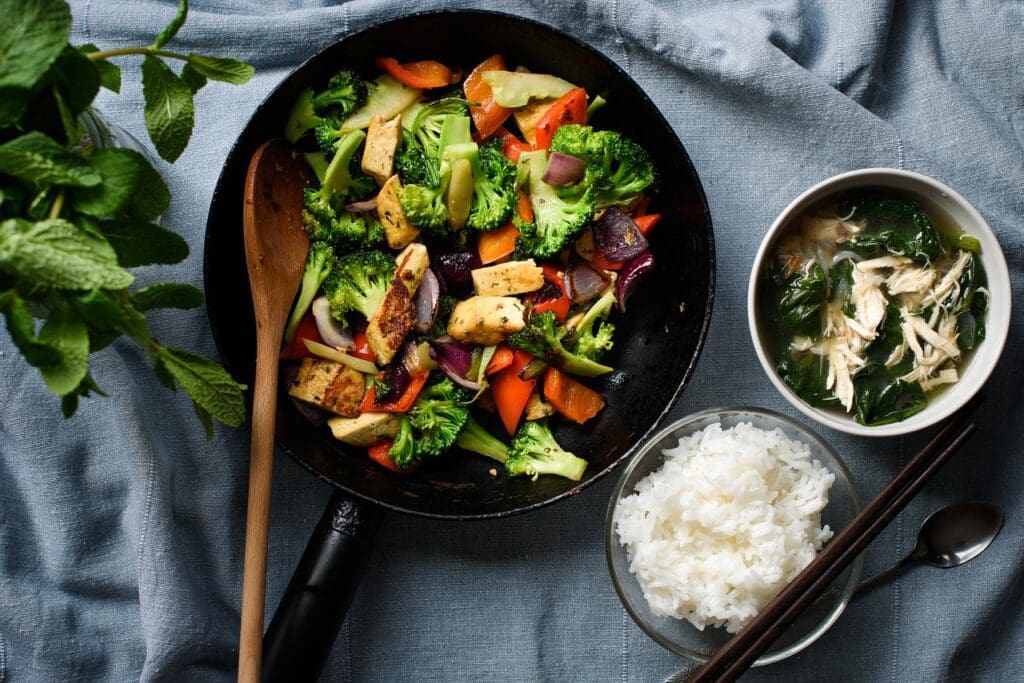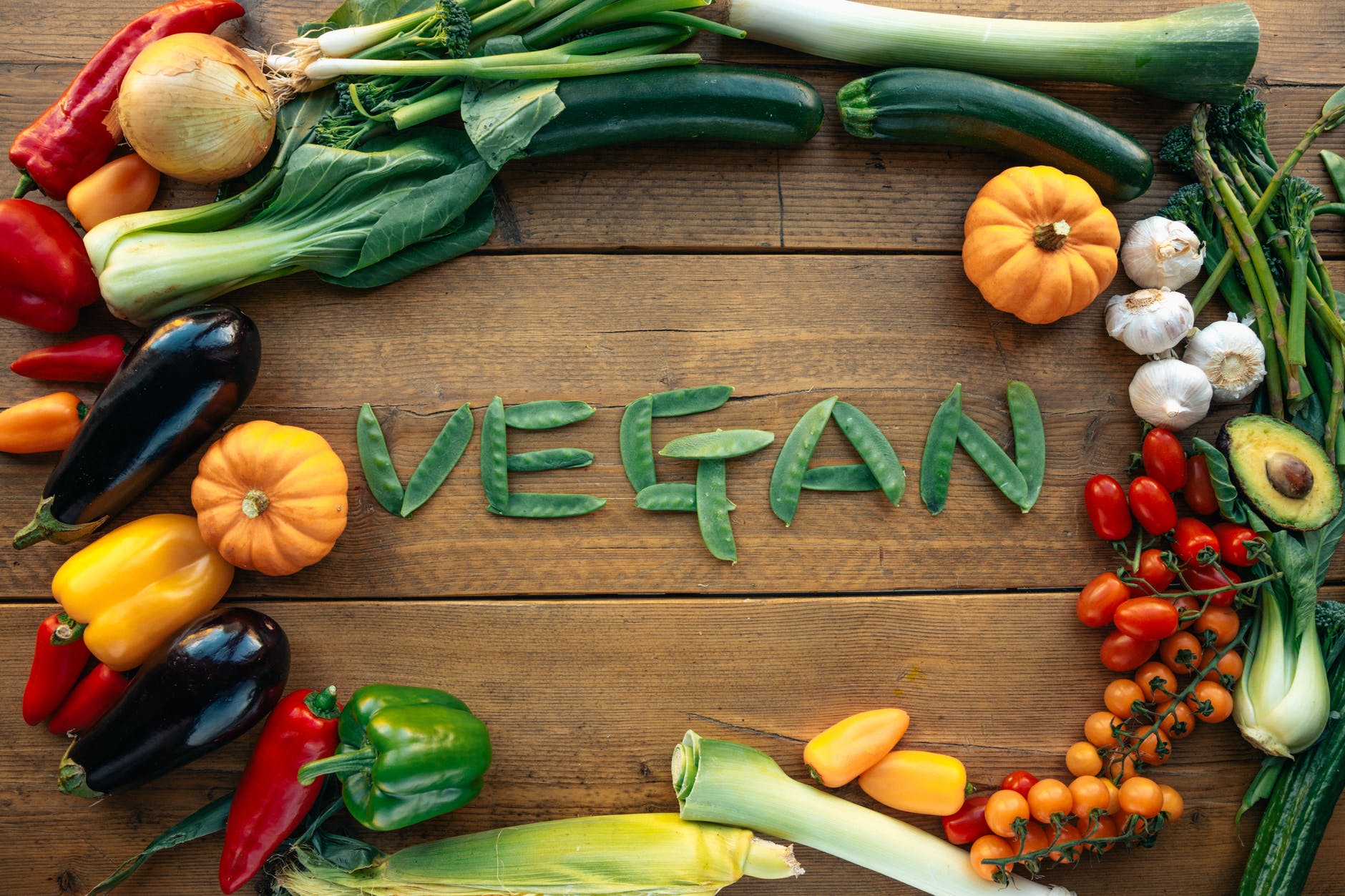The vegan diet has risen in popularity in recent years. Why? What are the benefits? Let’s find out!
Veganism is becoming more popular among individuals for various reasons, including ethical, environmental, and health concerns. When properly followed, such a diet may provide several health advantages, including a slimmer waistline and better blood sugar control. However, a diet consisting only of plant foods may increase the risk of developing nutritional deficiency disorders in certain circumstances.
This article provides an introduction to the vegan diet for those who are new to it. Our goal is to provide you the essential information you need to follow a vegan diet successfully.
Table of Contents
What Is the Vegan Diet?
Animal abuse and cruelty are forbidden in veganism. Instead, it is described as a way of life that aims to remove all kinds of animal slaughter and suffering, whether for food, clothing, or other reasons.
Because of this, the vegan diet plan excludes all animal-based products, including meats, eggs, and dairy. If you are confused about where to start, you can find vegan recipes on the Picky Eater Blog, or order prepared meal delivery services.
There are a variety of reasons why people opt to follow a vegan diet.
Different Types of Vegan Diets
Vegan diets are available in a variety of types. The most common of them are:
Whole food: This is a whole plant-based diet consisting of vegetables, fruits, whole grains, legumes, nuts, and seeds.
Raw food: This dietary guideline for vegans includes eating only raw fruits and vegetables and boiling them at temperatures under 118°F (48°C) to keep all the nutrition contained.
80/10/10: This is a raw-food diet plan that restricts consuming fat-rich foods like nuts and avocados and instead promotes the consumption of fruits and vegetables.
The starch solution: This diet plan is similar to 80/10/10. It is also a high-carb, low-fat diet plan. But unlike the 80/10/10, it focuses on cooked starches like corn, rice, and potatoes instead of fruit as the primary source of energy.
The thrive diet: It is also a raw-food diet plan that promotes nutrient-dense foods. Followers of this diet plan consume plant-based, whole foods that are either eaten fresh or cooked at low temperatures with little processing.
Raw till 4: Inspired by the starch solution and the 80/10/10 diet plan, this low-fat vegan diet keeps you going till 4. The diet plan states that you should only consume raw foods till 4 p.m, but you can also have a properly cooked plant-based meal.
Junk-food Vegan diet: This diet plan lacks whole plant meals, and it is highly dependent on processed vegan foods such as fake meat and cheese, fries, vegan desserts, and other highly processed vegan foods.
Although there are many types of the vegan diet, the most scientific study does not really differentiate between the different types of vegan diets. As a result, the information included in this article is relevant to vegan diets in a general way.
Which Foods Do Vegans Avoid?
In addition to avoiding any animal products, vegans also avoid any meals that include components produced from animals. These are some examples:
- Poultry and meats: Beef, pork, lamb, veal, organ meat, horse, wild meat, chicken, goose, turkey, duck, quail, etc.
- Fish: All types of fish, shrimp, squid, anchovies, calamari, lobster, scallops, mussels, crab, etc.
- Eggs: From chickens, ostriches, quails, fish, etc.
- Dairy: Milk, cheese, yogurt, butter, ice cream, cream, etc.
- Bee products: Honey, royal jelly, bee pollen, etc.
- Animal-based Products: whey, lactose, casein, egg white albumen, gelatin, L-cysteine, carmine or cochineal, shellac, isinglass, fish-derived omega-3 fatty acids, and animal-derived vitamin D3.
However, there are some substitutes for these foods and products.
Substitute Foods
Vegans who are concerned about their health replace animal protein and animal-based products with plant-based alternatives, such as:

- Tofu, tempeh, and seitan: These are a great alternative to meats, fish, poultry, and eggs. They are protein-rich and can be used in a wide variety of dishes.
- Legumes: Beans, lentils, and peas are excellent sources of nutrients and plant compounds. Nutrient absorption can be improved by sprouting, fermenting, and properly preparing foods.
- Nuts and nut butter: Unblanched and unroasted types are exceptionally high in iron, magnesium, fiber, zinc, selenium, and vitamin E. They are also low in cholesterol and fat.
- Seeds: Hemp, flaxseeds, and chia seeds, in particular, are high in protein and omega-3 fatty acids, which are healthy for the body.
- Calcium-fortified plant milk and yogurts: These products assist vegans in obtaining the required dietary calcium intake. Whenever possible, choose varieties that are enriched with vitamins D and B12.
- Algae: A excellent source of complete protein is found in the algae spirulina and chlorella. Other types are excellent sources of iodine.
- Nutritional yeast: This is a simple way of increasing the protein level of vegan meals while adding a unique, cheesy taste to them. When possible, choose varieties that are supplemented with vitamin B12.
- Whole grains, cereals, and pseudocereals: These are fantastic sources of complex carbohydrates, iron, fiber, B-vitamins, and a variety of other nutrients. Spelled (Dinkel wheat), amaranth, teff, and quinoa are among the high-protein options to consider.
- Fermented and sprouted plant foods: Vitamin K2 and probiotics are often found in Ezekiel bread, miso, natto, tempeh, sauerkraut, kimchi, pickles, and kombucha. You can also improve mineral absorption by sprouting and fermenting foods as well.
- Vegetables and fruits: Both of these products are excellent for increasing your nutritional intake. Leafy greens, such as spinach, bok choy, kale, watercress, and mustard greens, are rich in calcium and iron.
A vegan diet plan would significantly benefit from the addition of these less processed plant foods.
Benefits of Vegan Diets
According to research, vegans are often slimmer and have a relatively lower body mass index (BMI) than non-vegans, which can be a reason why an increasing number of individuals are turning to vegan diets: to help them lose weight.
Some of the advantages vegans enjoy in terms of weight loss can be explained by factors besides diet. These may include making better lifestyle choices like increasing physical activity and engaging in other health-promoting activities.

Several randomized studies, however, indicate that vegan diet plans are more effective at reducing weight. Many of these diets are recommended by the American Heart Association (AHA), American Dietetic Association (ADA), and the National Cholesterol Education Program (NCEP).
Also, studies find that vegan diet participants lose more weight than someone on calorie-restricted dieting, even when permitted to eat until they are full. On a vegan diet, the natural instinct to consume fewer calories can be because of a higher dietary fiber intake, making you feel full.
Maintaining a vegan diet can help you maintain a healthy blood sugar level and keep type 2 diabetes away. Several studies by the American Diabetes Association have shown that vegans have lower blood sugar levels, better insulin sensitivity, and a 78 percent reduced chance of acquiring type 2 diabetes than non-vegans. Also, vegan diets are found to decrease blood sugar in people with diabetes by approximately 2.4 times more than the diets advised by the American Diabetes Association, American Heart Association, and NCEP.
One possible reason for the benefit is increased fiber consumption, which may reduce the blood sugar responses. In addition, increased weight reduction connected with a vegan diet may contribute to the diet’s ability to decrease blood sugar levels.
A vegan diet can be advantageous in maintaining cardiovascular fitness. Considering the results of observational studies, vegans may have a 75 percent reduced chance of having high blood pressure and a 29 percent reduced risk of having a heart attack.
Several studies have shown that vegan diets are more successful than other diets in lowering LDL cholesterol, blood sugar, and total cholesterol. These benefits may be beneficial since lowering blood pressure, cholesterol, and blood sugar can decrease the risk of heart disease by up to 46 percent.
According to some research, vegans benefit from a 15 percent reduced risk of getting cancer or dying from cancer. It seems that vegan diets are especially helpful in alleviating the symptoms of arthritis, such as pain, inflammation of the joints, and morning stiffness. People with diabetes who substitute plant protein for meat may lower their risk of kidney disease. It has been shown in observational studies that some elements of the vegan diet may help lower the chance of acquiring Alzheimer’s disease.
It is important to remember that most of the research that shows these advantages is observational. As a result, it is impossible to establish if the vegan diet was directly responsible for the health benefits.
Conclusion
Individuals can choose veganism for a variety of reasons, including ethical, environmental, and health considerations. A vegan diet can be simple to follow when done correctly. In addition, it may well have several health advantages for the individual.
Just like any diet, these advantages will only be seen if you maintain a regular eating pattern and base your meals on nutrient-dense foods rather than highly processed foods.
Featured Image by Pexels.com




